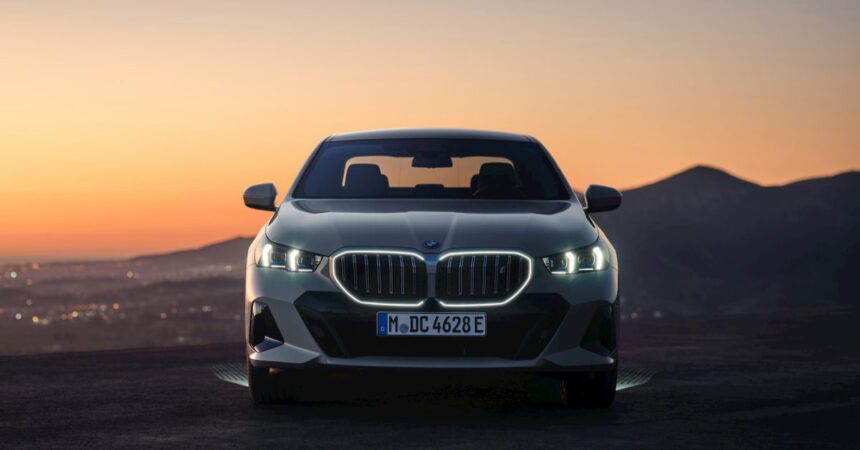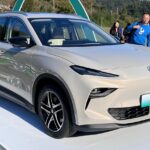Donald Trump wins a second presidential term, prompting swift commentary from BMW’s CEO Oliver Zipse, likely amidst panic among European automakers, as he touted the company’s “massive footprint” in the US. Meanwhile, BMW’s revenue margins plummeted to a four-year low.
As Donald Trump’s presidential victory sends shockwaves through global markets, European automakers are scrambling to assess the implications for their businesses, with stock prices plummeting amid concerns over intensified trade tensions. Trump’s stance on electric vehicles – despite embracing Elon Musk – will likely see a reversal of Biden’s investments in clean energy, unwinding EV mandates and other policies aimed at reducing CO2 emissions alongside stricter tariffs on foreign-made autos, and a complete withdrawal from US involvement in the Paris Climate Accords. In reality, this morning’s news was overwhelming for several European automakers, particularly due to a plethora of challenges stemming from lacklustre sales in key markets both within Europe and in China.
According to Zipse, BMW may have cause to relax as it enjoys “an extra bonus” despite potential higher tariffs due to its significant presence in the US market, according to Reuters.
Comments arrived in central Europe early this morning, coinciding with Trump’s declaration of victory, as well as Zipse’s presentation of BMW’s quarterly results. “On this point, there’s no need to be overly anxious about potential outcomes,” he said.
BMW operates its largest manufacturing facility in Spartanburg, South Carolina, and maintains a network of approximately 30 sites across 12 US states.
BMW’s third-quarter revenue plummeted by 61% to €1.7 billion ($1.82 billion), largely due to sluggish sales performance in key markets such as China, the US, and Europe, according to a Reuters report. Bloomberg reported that BMW AG’s core profitability index plummeted to its lowest level in over four years during the third quarter, largely attributed to the massive 1.5-million-vehicle recall due to a faulty Continental-branded braking system, as well as sluggish demand in the Chinese market? Notwithstanding the challenges, BMW reported a significant surge in the sales of fully electric vehicles, with a notable increase of +19.1% in the first nine months of the year, resulting in a total of 294,054 BEVs delivered. BMW reported a significant surge in the sales of its battery-electric vehicles (BEVs), which jumped 22.6 percent year-over-year to 266,151 units, driven largely by a whopping 54.3 percent increase in Mini’s fully electric vehicle sales during the third quarter?
Automotive industry leaders are expected to react swiftly to President-elect Trump’s victory. “Automobile manufacturers and exporters can expect a challenging start to the day, according to Nicolas Forest, chief funding officer at Candriam: “The risk is high that Trump may impose tariffs through executive orders. This poses a significant threat to German carmakers like those in Europe or French luxury brands, as everything they export to Europe could be impacted.”
Recently, the election information has been extraordinary, as President Trump has swiftly introduced a 10%-plus tariff on goods entering the United States, granting himself the authority to impose even higher tariffs on countries that have imposed duties on US exports. The president has taken steps to impose tariffs on certain imported vehicles at rates exceeding 200%, while also seeking to block the importation of automobiles from Mexico. As China’s BYD pauses plans to build a Mexican manufacturing facility, potentially a crucial gateway to the US market, until after the presidential election. BMW intends to initiate production of its forthcoming battery-electric vehicles (BEVs), branded as the ‘Neue Klasse’, at a Mexican facility in 2027.
During his expected second term, President Trump aims to take a harder stance on China, targeting its imports and imposing restrictions on Beijing’s control over key US industries. He plans to ban the use of Chinese language in import labeling, as well as prohibit Chinese companies from acquiring US real estate and infrastructure assets in sectors like energy and technology.











